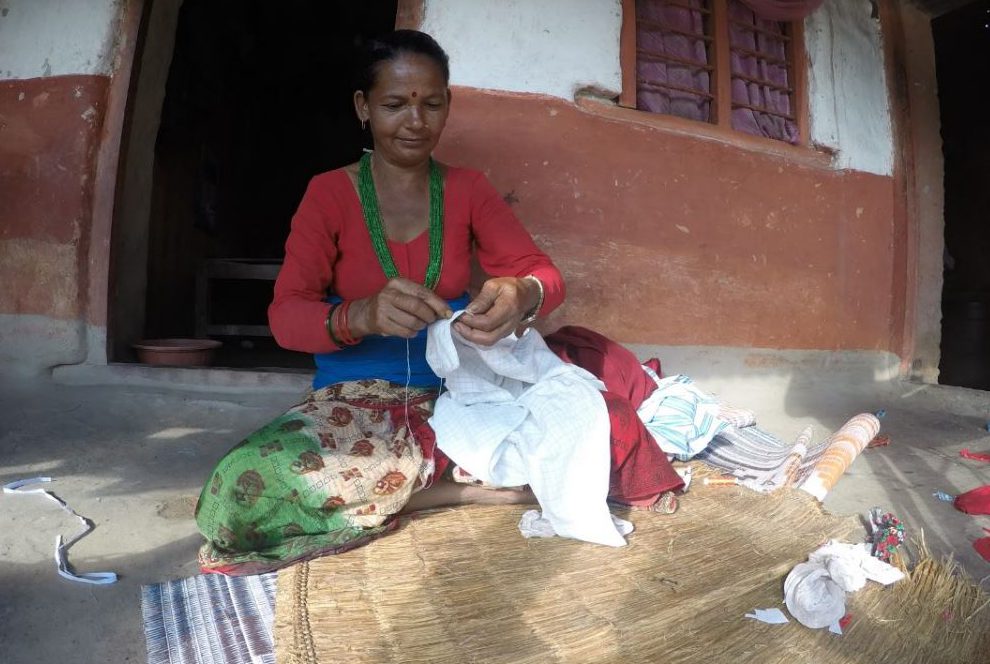
A potential patchwork and quilting skill building project could open up new opportunities for Dalit women in rural Nepal
by Pisana Ferrari – cApStAn Ambassador to the Global Village
Kaskikot is a small village on the trekking route to the Annapurna massif, situated at an altitude of 1.788 m. In the village the Dalits, who occupy the lowest status in the caste system, are most vulnerable to facing barriers to education and employment.
Sansar Nepal is an educational non-profit NGO based in Pokhara, central Nepal. Founded in 2013, it made a commitment to support and facilitate access to formal basic education for disadvantaged rural and urban youth, encourage life-long learning in underprivileged communities, build teacher capacity, and promote leadership among young Nepalese changemakers by providing opportunities for knowledge exchange and impact activities to advance livelihood and community development. The organisation celebrates and promotes the power of education and knowledge exchange by engendering win-win situations for all.
Kaskikot was selected for a prospective patchwork and quilting project because caste discrimination and economic deprivation affecting Dalits are particularly rampant in this area. The village headman, who belongs to a higher caste, and the Dalit representative, were approached by Sansar Nepal in order to gauge interest in the possible initiative. With the intention of furthering an inclusive approach, Sansar Nepal plans to carry out a brief (census) survey, consisting of face-to-face interviews, to determine whether there is a genuine interest and willingness to participate at the community level. In order to avoid disrupting normal village life, the survey will be held during the fall of 2018, when farmers will have already completed paddy plantation activities and are waiting for harvest.
Sansar Nepal plans to survey the entire population of Dalit rural women (69) living in Kaskikot. If the survey garners positive results, a project will be developed accordingly to impart training in employable skills focusing on patchwork and quilting. Other interests will also be documented and explored, and could change the nature of future projects targeting this village.
We at cApStAn came into contact with the work of Sansar Nepal thanks to Michelle Djekić, a volunteer staff member at the organisation, that is helping to coordinate the project. Michelle used to work for the International Association for the Evaluation of Education (IEA), one of our international clients. We are proud to have been able to make our own small contribution to this commendable initiative by translating the original English questionnaire into Nepali. We wish Michelle and Sansar Nepal the best of luck and look forward to hearing about the results of the survey.
In the same spirit, we recently commenced with some volunteer work for Translation without Borders, a non-profit organisation that aims to close the language gaps that hinder critical humanitarian efforts worldwide.